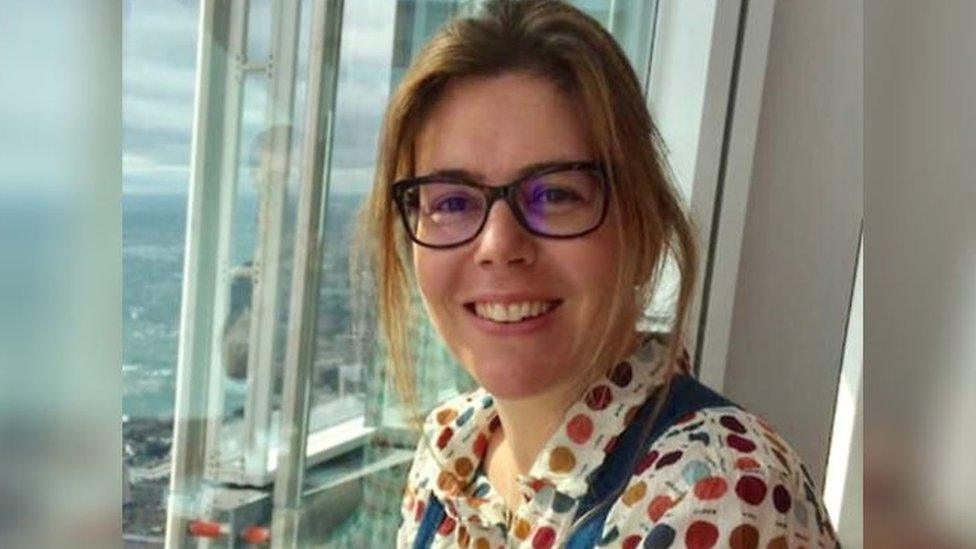Call for NHS to fund £240,000 cancer treatment Optune
- Published
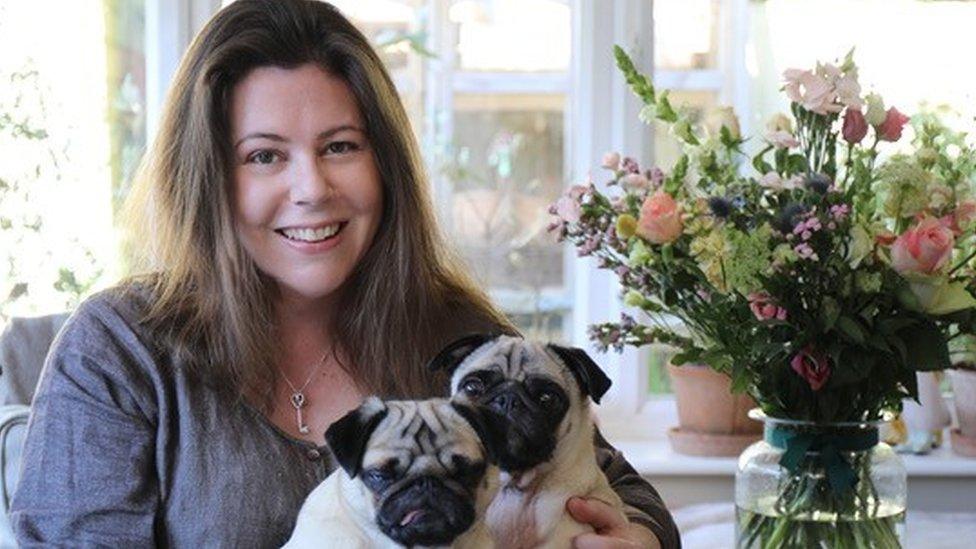
Nancy Carter-Bradley said the treatment would be a game-changer
A woman who has been given two years to live is campaigning for a £240,000 cancer treatment to be funded by the NHS.
Nancy Carter-Bradley, from Penwood in Hampshire, has been battling a brain tumour on and off since 2005.
The 46-year-old described a treatment called Optune as a "real beacon of hope" and believes it would give her the chance to "buy some time".
But health chiefs in the UK believe the treatment is not cost-effective.
In 2018 it was decided that it would not be made available on the NHS.
Dr Matthew Williams, a consultant clinical oncologist for Imperial College Healthcare NHS Trust, has explained that the treatment requires patients to have electrodes attached to their skull to allow frequencies to damage cancer cells.
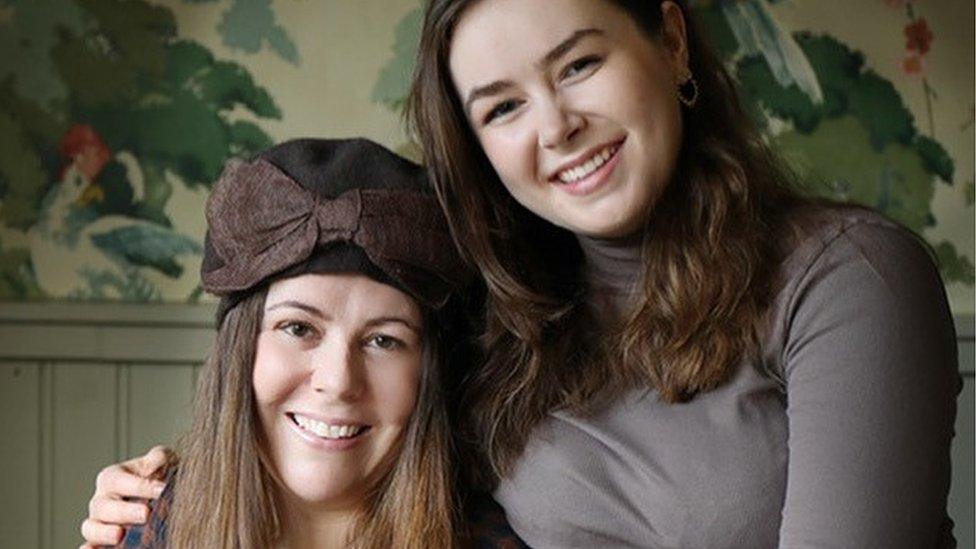
Ms Carter-Bradley wrote a children's book which was illustrated by her daughter Freya to raise funds for cancer research
He said a trial showed the treatment could extend life expectancy, external by several months.
Dr Williams, who has been working with Optune patients and is also Ms Carter-Bradley's consultant, said it would have to be in addition to chemotherapy and radiotherapy.
Mother-of-two Ms Carter-Bradley is currently unable to fund the treatment, which costs about £20,000 a month.
But she thinks it should be accessible to everyone who needs it.
"I don't think you can put a price on someone's life. I think we are better than that. I am terrified of what is to come for me and I feel I am fighting to get a real chance," she said.
Petition to Parliament
"This is really the only bit of hope that I have got," she added.
She started a petition on Friday and is hoping to reach 100,000 signatures so the issue could be considered for debate in Parliament. More than 600 people have signed it so far.
The National Institute for Health and Care Excellence makes decisions on treatments that are clinically and cost-effective for use on the NHS.
It said it recommended against the use of Optune "because there was insufficient evidence of its clinical effectiveness in terms of improvement in overall survival and progression-free survival to make the technology cost-effective".
However, it has said it monitors research developments and ensures that all guidelines - including the one about Optune - are up to date.

Follow BBC South on Facebook, external, Twitter, external, or Instagram, external. Send your story ideas to south.newsonline@bbc.co.uk, external.
- Published4 February 2022
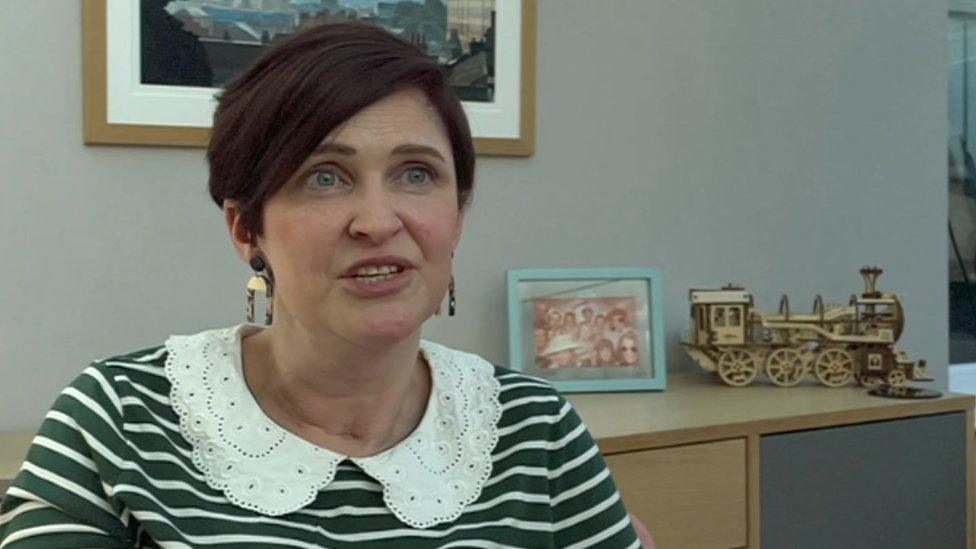
- Published14 January 2022
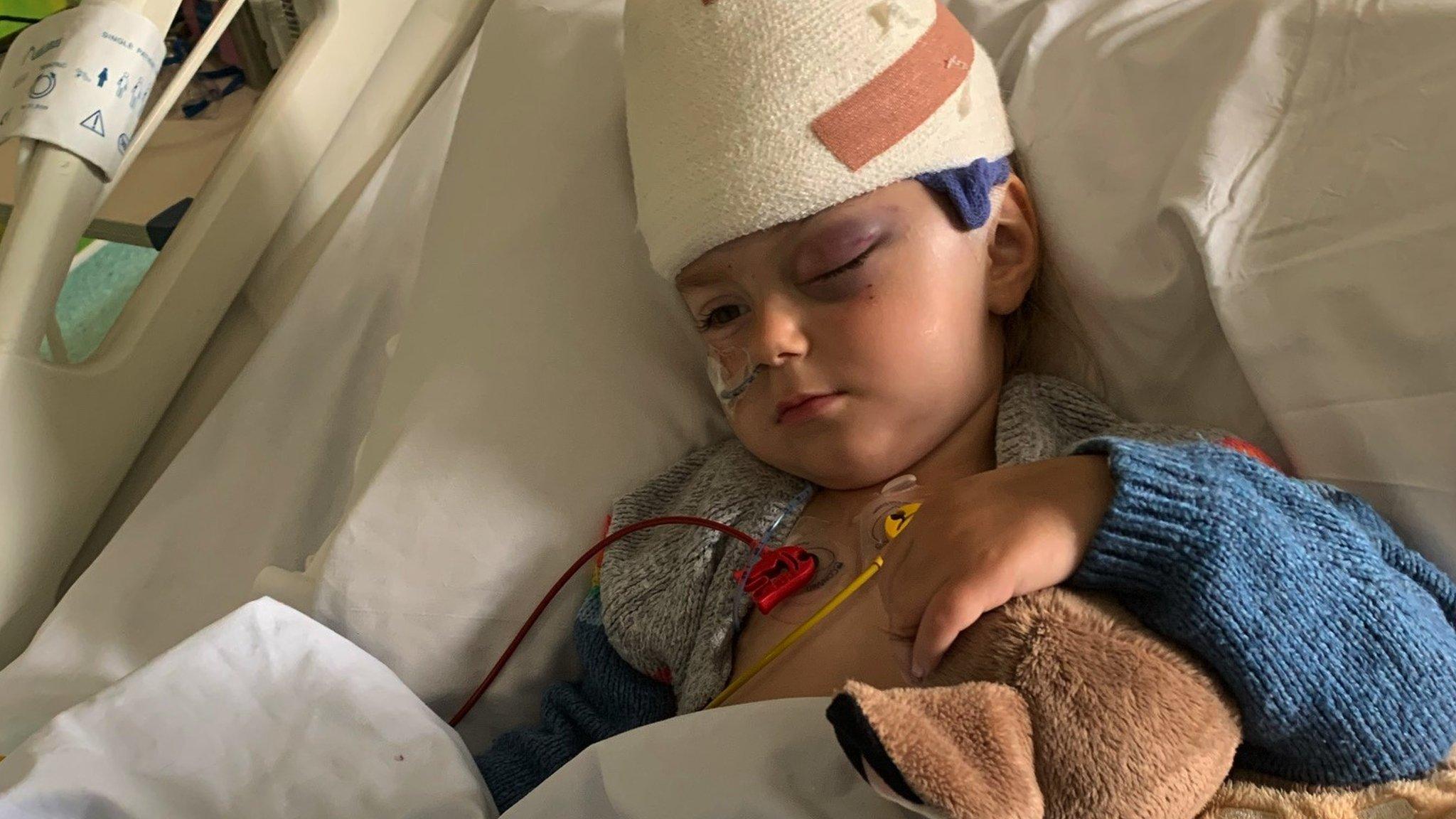
- Published7 January 2022
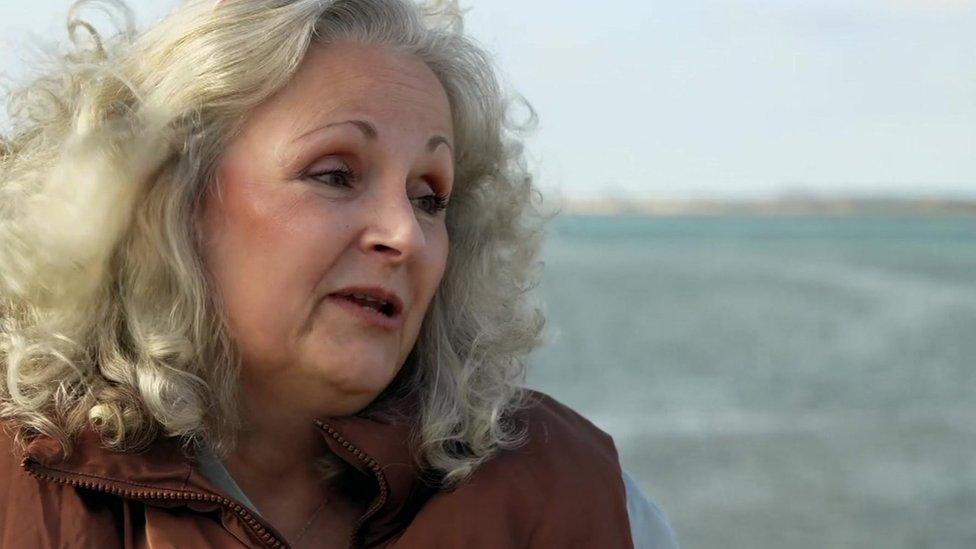
- Published26 March 2020
